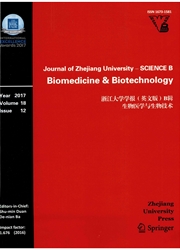

 中文摘要:
中文摘要:
简要概括DNA损伤修复系统在人体中的作用和机制,并探讨其改变与人类生殖能力以及通过辅助生殖技术诞生的子代之间的相互影响。希望更多相关工作的进行能够为人类小孕症的预防、诊断和治疗工作建立一个更好的医疗体系。
 英文摘要:
英文摘要:
DNA mismatch repair (MMR) is one of the biological pathways, which plays a critical role in DNA home- ostasis, primarily by repairing base-pair mismatches and insertion/deletion loops that occur during DNA replication. MMR also takes part in other metabolic pathways and regulates cell cycle arrest. Defects in MMR are associated with genomic instability, predisposition to certain types of cancers and resistance to certain therapeutic drugs. Moreover, genetic and epigenetic alterations in the MMR system demonstrate a significant relationship with human fertility and related treatments, which helps us to understand the etiology and susceptibility of human infertility. Alterations in the MMR system may also influence the health of offspring conceived by assisted reproductive technology in humans. However, further studies are needed to explore the specific mechanisms by which the MMR system may affect human infertility. This review addresses the physiological mechanisms of the MMR system and associations between altera- tions of the MMR system and human fertility and related treatments, and potential effects on the next generation.
 同期刊论文项目
同期刊论文项目
 同项目期刊论文
同项目期刊论文
 Altered expressions and DNA methylation of imprinted genes in chromosome 7 in brain of mouse offspri
Altered expressions and DNA methylation of imprinted genes in chromosome 7 in brain of mouse offspri Different sperm sources and parameters can influence intracytoplasmic sperm injection outcomes befor
Different sperm sources and parameters can influence intracytoplasmic sperm injection outcomes befor Altered expression of Armet and Mrlp51 in the oocyte, preimplantation embryo, and brain of mice foll
Altered expression of Armet and Mrlp51 in the oocyte, preimplantation embryo, and brain of mice foll Genome-wide DNA methylation patterns in IVF-conceived mice and their progeny: A putative model for A
Genome-wide DNA methylation patterns in IVF-conceived mice and their progeny: A putative model for A Evaluation of DNA methylation status at differentially methylated regions in IVF-conceived newborn t
Evaluation of DNA methylation status at differentially methylated regions in IVF-conceived newborn t In Vitro Fertilization Alters Growth and Expression of Igf2/H19 and Their Epigenetic Mechanisms in t
In Vitro Fertilization Alters Growth and Expression of Igf2/H19 and Their Epigenetic Mechanisms in t Alterations in the frequency of trinucleotide repeat dynamic mutations in offspring conceived throug
Alterations in the frequency of trinucleotide repeat dynamic mutations in offspring conceived throug Persistence and intergenerational transmission of differentially expressed genes in the testes of in
Persistence and intergenerational transmission of differentially expressed genes in the testes of in 期刊信息
期刊信息
